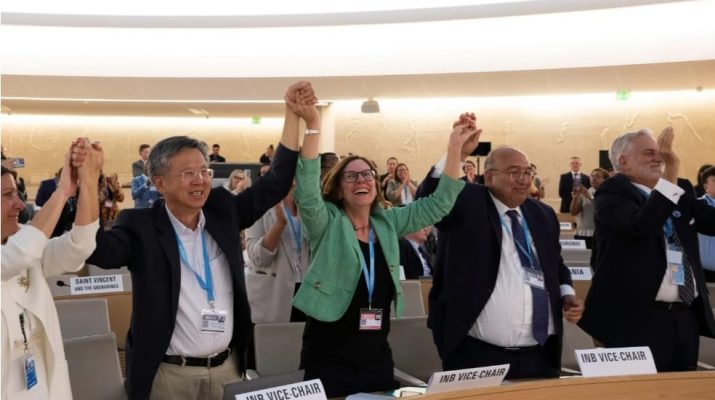By Abigael Gioche
The World Health Organization (WHO) member states formally adopted the world’s first Pandemic Agreement yesterday by consensus during the 78th World Health Assembly.
The agreement was passed on the first day of the Assembly, May 19th with 124 states in support, no opposition and 11 abstaining.
The agreement draws it’s lessons from the COVID-19 crisis, and aims at enhancing equity, transparency, and solidarity in global health efforts. It intends to enhance global preparedness and response to future pandemics.
“The world is safer today thanks to the leadership, collaboration and commitment of our Member States to adopt the historic WHO Pandemic Agreement,” said Dr Tedros Adhanom Ghebreyesus, WHO Director-General.
“The Agreement is a victory for public health, science and multilateral action. It will ensure we, collectively, can better protect the world from future pandemic threats,” he highlighted.
“It is also a recognition by the international community that our citizens, societies and economies must not be left vulnerable to again suffer losses like those endured during COVID-19,” he added.
The Agreement proposes the establishment of a Pathogen Access and Benefit -Sharing System(PABS), a platform designed to ensure timely access to pathogens with pandemic potential and the corresponding equitable sharing of benefits.
It also emphasizes the fair distribution of vaccines, diagnostics and treatments, especially to low and middle income states.
However, it does not grant the WHO mandate to authorize health measures such as lockdowns, rather it respects the sovereignty of its member states.
The Agreement encourages states to develop comprehensive pandemic plans, and enhance surveillance capacities.
It also proposes the creation of a Global Supply Chain and Logistics Network, to ensure timely and equitable access to pandemic-related health products during emergencies.
The Agreement will come into effect once at least 60 countries ratify it.

